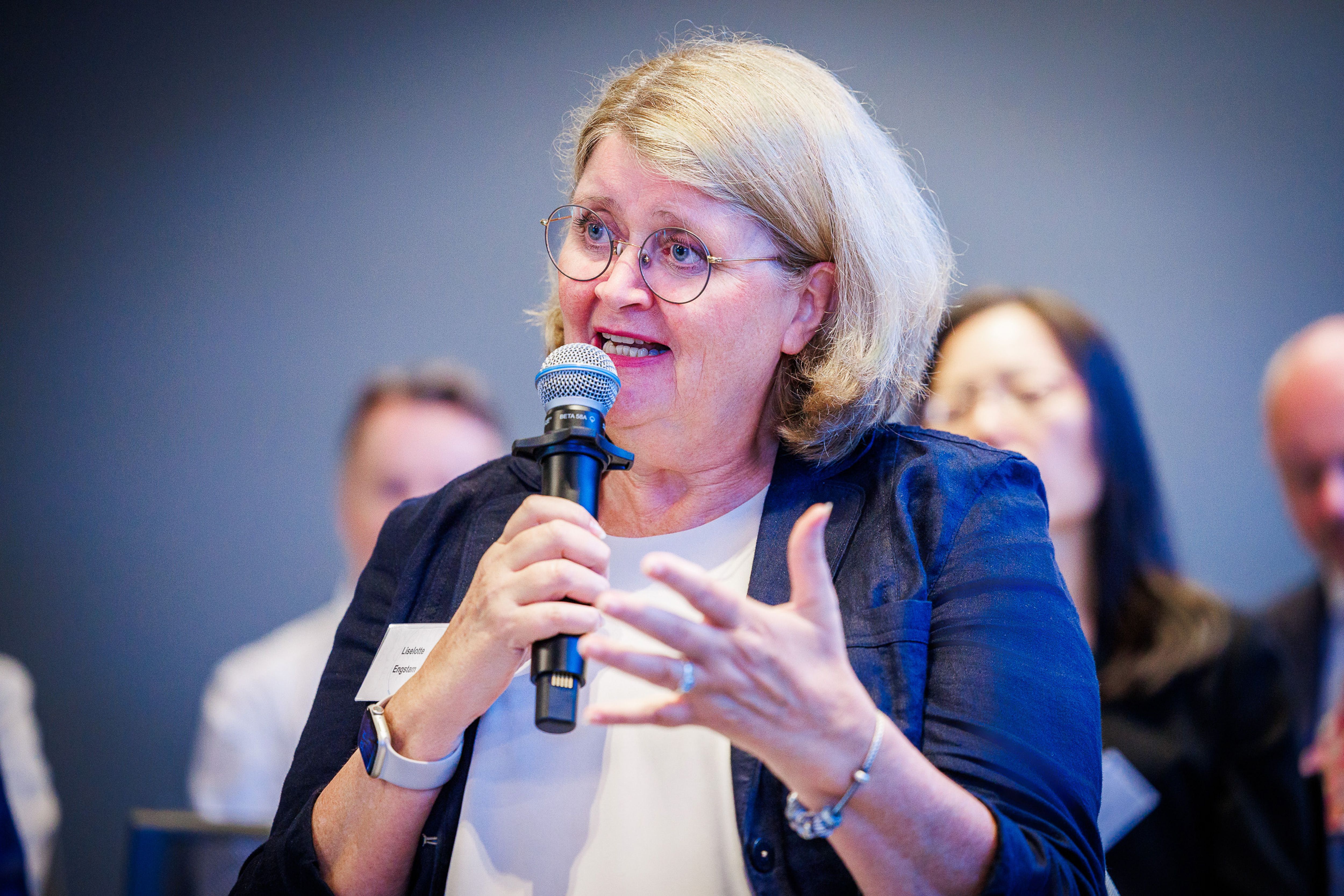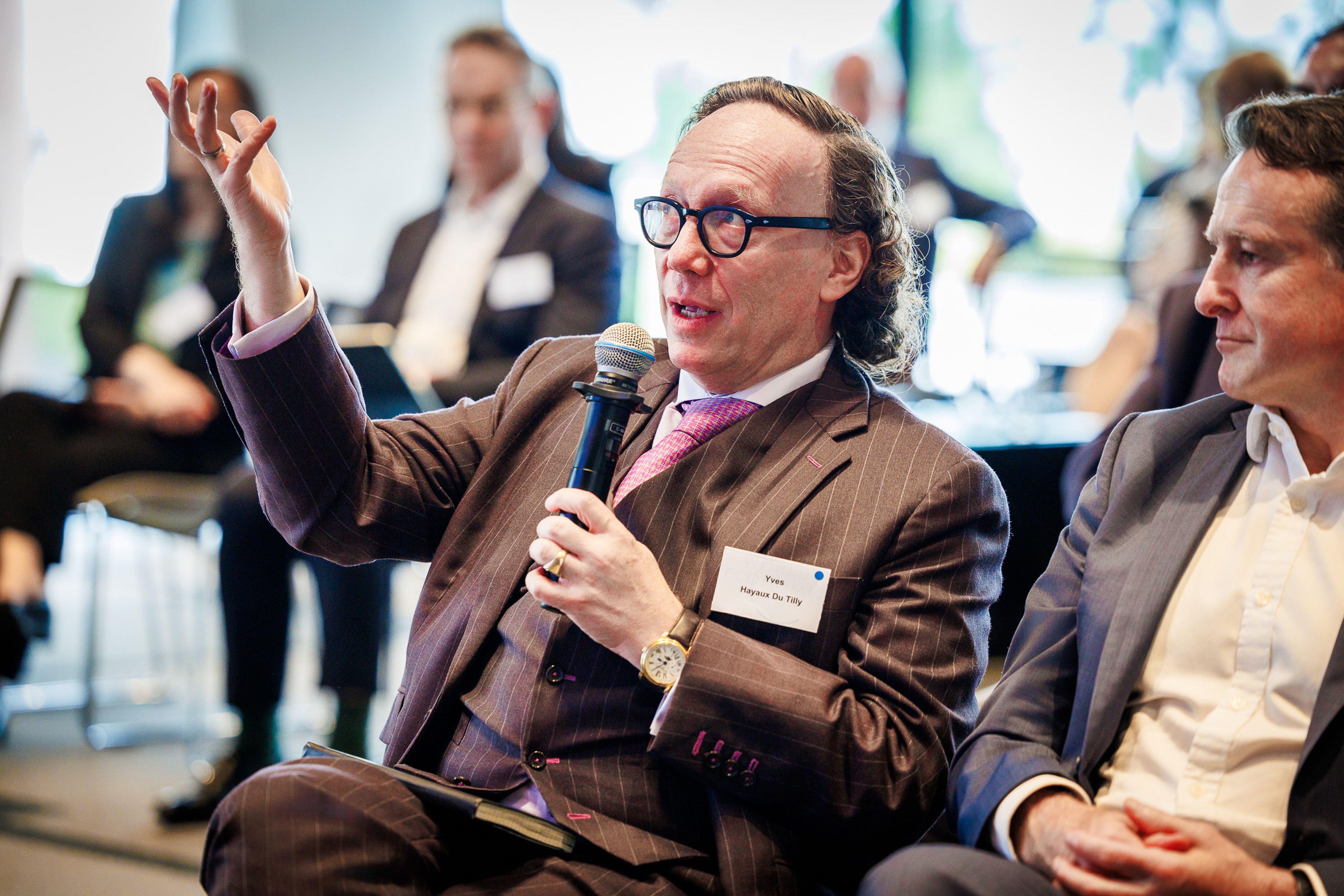Despite the annual cost of climate change damages at $38 trillion1, and the potential to unlock trillions of dollars in annual new business opportunities, only a third of board directors see climate as a high priority, according to research from the Climate Governance Initiative2.
The World Economic Forum and Climate Governance Initiative gathered transformational directors in climate leadership from around the world at a high-level workshop in Geneva. The purpose was to identify the barriers to building an enabling environment that allows businesses and boards to unlock the opportunities from the net zero transition, and determine how these obstacles can be overcome.

|
Shailesh Haribhakti, board director, India |
The challenges faced by this diverse group of directors in driving boardroom climate action resonate across geographical region, sector and different governance structures. These include:
- Psychological safety – in boardrooms, there is often a lone voice advocating the business case for climate and nature. This can lead to those board directors feeling uncomfortable and discouraged to push for climate to be on the agenda, due to continued challenging and rejection from management and other board members. This in turn can create a toxic boardroom environment and deter directors from speaking out on climate-related topics.
- Mindset shift – for organisations to address the climate and nature crises and benefit from the opportunities arising from the transition, these issues must be an integral part of the business strategy, enabling every part of the organization to embed sustainability and every person to incorporate it into their role.
Shai Ganu, board director, Singapore |
|
- Governance structures – for climate to be integrated into the organisation’s strategy, structures must be in place for it to be appropriately considered at board level. Often, physical and transitional risks are considered only by the Sustainability Committee and not the Audit or Risk Committees which receive the most attention because of the financial impacts on the organisation.
- Lack of climate knowledge – board directors are generally not sufficiently educated about the climate risks and opportunities, or the nature dependencies affecting their organisation. Without the appropriate knowledge, boards are at risk of making uninformed decisions, and are unable to ask the right questions of the management team which can severely impact the long term success of the organisation.
The combination of these challenges disrupts and deters the board from making the business case for climate and nature and embedding it as a core part of the organisation’s strategy.
Setting the right culture
As part of the workshop ‘Mobilizing Directors for Climate Action’, the transformational board directors agreed that without the correct culture and motivation in place to allow the business case for climate and nature to be made, boards cannot adequately address climate-related risks and maximise the opportunities to ensure long term success in the net zero future.

|
Liselotte Engstam, board director, Sweden |
With the appropriate culture in the boardroom, the obstacles identified become redundant. The right culture and stewardship outlook of a board creates an environment where climate and nature are core components of the organisation’s business. This creates:
- A safe environment for board directors to put forward new and innovative ideas in the boardroom without fear of dismissal or humiliation.
- A mindset, cutting across every pillar of the organisation, which takes climate and nature considerations into account in all aspects of the business.
- A structure where climate and nature are not siloed in the Sustainability Committee, but integrated into reporting across the committees. Due time and care are taken in the Audit or Risk Committee when these issues are considered a material financial risk or opportunity. The Nominations Committee is able to take sustainability considerations into account when appointing a new director, by including a number of requirements in a candidate's skills and experiences. Similarly, the remuneration committee can allocate financial incentives tied to sustainability performance.
- A space and opportunity for board directors to upskill on climate and nature topics through the organisation’s culture of prioritizing and highlighting the importance of these topics.
An important aspect to set the right culture in the organisation is for it to be driven by the CEO and Chair of the board. There must be alignment between these two roles for this to be successful, long-lasting and filter through the board and organisation more widely.
Yves Hayaux-du-Tilly, board director, Mexico |
 |
The sustainability agenda must belong to everyone in the boardroom. With the right culture and motivation, all board members can be champions of people, planet and profit.




